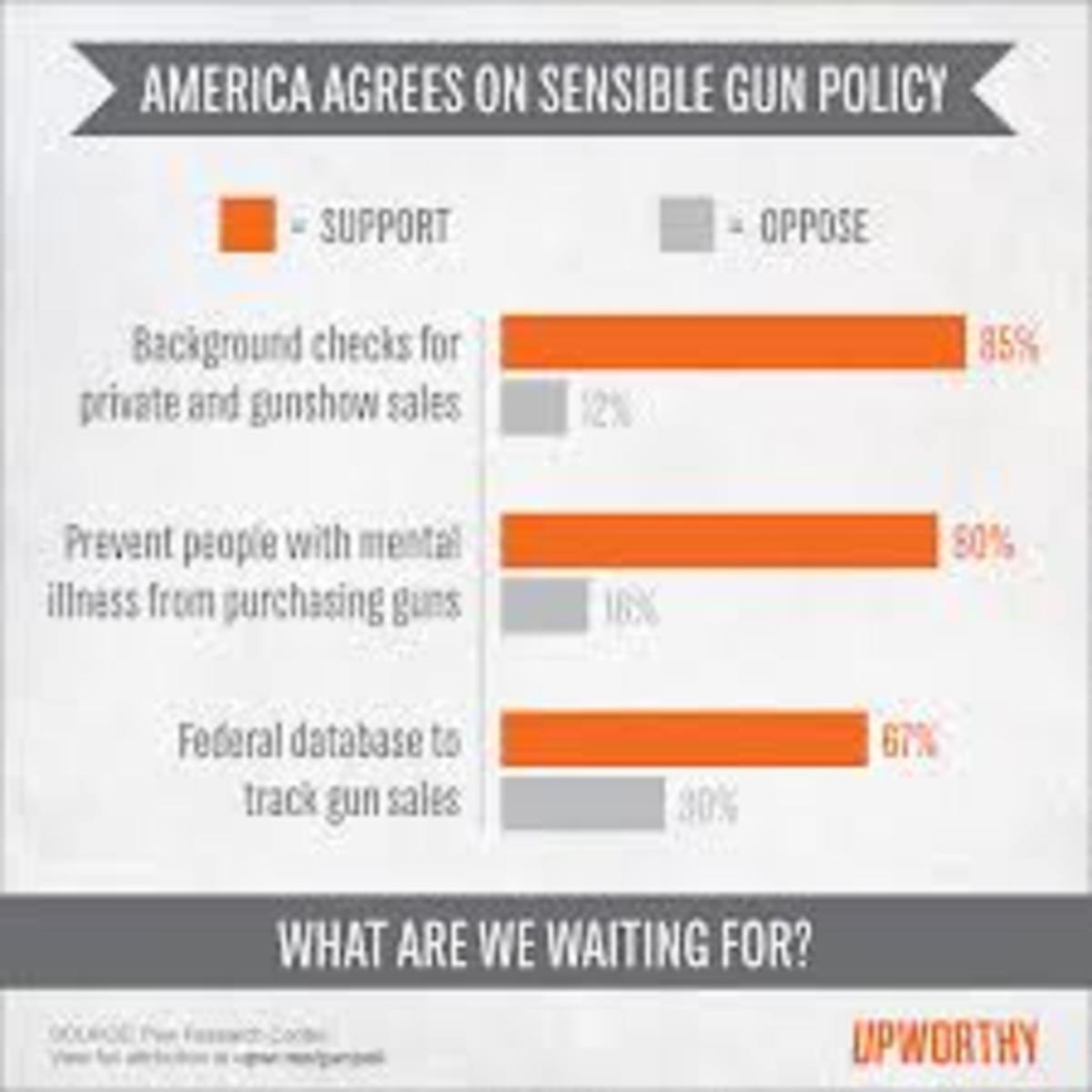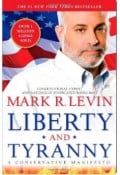Is gun control a dead issue?
Introduction
Every time there is a massive shooting, there are renewed talks from the left in the U.S. about how we need more gun restrictions. The latest was seen after the shooting of congresswoman Gabrielle Giffords by the crazed Jared Loughner. Yet the controversy didn’t last long; proposals for new gun control measures fizzled and died in the house and senate, and public opinion polls showed that the American public had not changed their opinion about guns. Some evidence even indicated that Americans had grown even more supportive of the right to bear arms.
This is a change that reflects many things. First, Democrats are reluctant to discuss or press the issue anymore because they realize it is toxic for many voters and that the gun issue is what caused the huge turnout in the 94 election that threw out many pro-gun control democrats. Also, the issue may seem dead because the Supreme Court has struck down the draconian handgun bans in Washington DC and Chicago fairly recently and affirmed that the constitution does indeed protect the right of individuals to own fire arms for self defense. In the United States, at least, it appears that gun control as an issue may be dead in the water.
But it is not dead. To be sure, the fact that the Supreme Court is protecting gun rights is good and that the creation of further gun control laws is not likely anytime soon is also good. But there are still unreasonable restrictions on gun ownership in some states. In addition, the fact that most other industrialized nations other than the United States have much stricter gun control laws than ours should be a reason to never forget that the right to bear arms is an important right that was explicitly outlined in the constitution, and that we should be vigilant when there are signs that that right is going to be taken away. We may seem out of touch with the rest of the industrialized world with our “liberal” gun laws, but we should not adopt the policies of Great Britain or Canada, which ban almost all privately owned handguns for self defense.
Post-Mcdonald restrictions
In the wake of the Supreme Court decision Mcdonald v. Chicago, which struck down the city’s handgun ban, mayor Richard Daley proposed a number of unreasonable restrictions on gun ownership that passed the city council by a margin of 45-0. Among the most draconian restrictions are limiting citizens’ ownership of handguns to one -per-month, forbidding bringing handguns outside of your home - even including on your garage, backyard or porch - and the banning of gun shops within city limits. There is also a requirement for special training classes for all gun owners, a restriction that may seem reasonable at first, but falls apart when you find out that training grounds are also forbidden within city limits.
Recently, the lawyer who originally challenged Chicago’s handgun ban, Alan Gura, has filed a lawsuit in Ezell v Chicago, charging that Chicago can’t ban gun ranges in the city while simultaneously requiring them in exercising what is now considered a constitutional right. Hopefully, this lawsuit allows the supreme court to not only strike down this draconian restriction, but takes a serious look at other contested questions about gun rights that the Mcdonald and Heller cases left undecided. For example, the majority opinion in DC v Heller said that while guns kept in the home for self defense are constitutionally protected, it didn’t cast doubt on long-standing restrictions on guns used outside the home, such as in “sensitive” places, like schools, government buildings, and bars. In addition, it left the question of concealed carry in DC wide open, despite the fact that most states allow some form of concealed carry. These are important questions to address, and let’s hope the supreme court errs on the side of liberty in these cases by allowing concealed carry, not to mention striking down the unreasonable restrictions on gun ownership in the wake of Mcdonald.
“Reasonable” background checks
Under federal background check laws, gun purchases are forbidden for people convicted of a serious felony, people deemed ‘mentally defective” or someone “who has been committed to any mental institution,” an illegal alien, a user of any illegal drug, and others.
I’m skeptical of background checks because I think they do very little to keep guns out of the hands of criminals. We all know that banning something doesn’t necessarily make it harder, much less impossible, to obtain. If that were the case, why are there so many pot smokers in this country, when it is illegal and clearly carries some harsh penalties for its use? A criminal can always obtain a gun illegally, and it is fairly easy to do so. According to a 1997 U.S. Justice Department survey of state prison inmates, only 0.7% of criminals obtained a gun at the much maligned “gun shows” that liberals tend to criticize for their loose rules, while a whopping 39.2% purchased them from an illegal street source. The majority, 39.6%, got their guns from family or friends.
It’s tempting to believe that background checks are “reasonable” and that we shouldn’t let criminals or mentally ill people have guns. In fact, I used to feel this way myself. But if it’s so easy for them to get guns anyway, what’s the point? In addition, I find some of the criteria for defining mentally ill people and dangerous criminals to be troublesome. According to a 2004 U.S. Justice Department investigation, the large majority of denials of gun purchases under federal background check laws were based on relatively minor offenses or things that happened far in the past. Some examples of the minor offenses that denials of gun purchases were issued over are a 1941 felony for stealing a pig, for example, or a felony in 1969 for stealing hubcaps. These are not major offenses that would be regarded as demonstrating that such people were too dangerous to own a gun. Instead, they reflect the unfortunate consequences of government interventionism, and in the process disarm people who are not probably not a danger to others.
The restrictions on the mentally ill owning guns vary from state to state. In one of the more strict states, Rhode Island, someone who was declared mentally ill but subsequently designated as “cured” by a physician must wait five years after the declaration before he/she can present a case to law enforcement figures (often with their physician present) that they’re competent and mentally “stable’ enough to own a gun. Many physicians are uncomfortable with such a standard because being “cured” is a continually fluctuating thing and doesn’t take into account the fact that a patient may relapse. Waiting five years after being declared “cured” of a mental illness before being able to exercise the constitutional right to bear arms for self defense is unreasonable and stigmatizes those with mental illness. As someone who was treated in a psychiatric hospital many years ago for major depressive disorder, this kind of regulation might bar me from owning a gun despite the fact that I would never hurt anyone else unless my life was in danger. I don’t own any guns, and have never needed one because I don’t live in a dangerous area, but if I did try to buy one, I might be disarmed due to prior mental history, regardless of the specifics of my situation or whether I was truly a danger to others or not. And what does it say to someone who lives in a high-crime area and needs protection but suffers from a mental illness or was committed in the past? “Sorry, you can’t own a gun because your illness makes you incompetent and because you might use it to hurt someone else?”
Any user of an illegal substance is also barred from owning a gun. From a purely legal standpoint, I can see why this would be the case, since an illegal drug is an illegal drug in the eyes of the law. But seriously, why should a marijuana user, for example, be barred from owning a gun? Marijuana’s known effects are not associated with any violent or aggressive behavior. On the contrary, marijuana is known to relax people, make them hungry or sleepy, or in general make them laid back and even lazy. Why should a user of marijuana, then, be barred from exercising the fundamental right to self defense simply because their drug of choice is illegal? If anything, a user of marijuana would be less likely to be impulsive or irresponsible in their use of a gun, given its calming effects. And if anything, users of alcohol should be more forbidden to use a gun, given the effects of that drug. I’m not saying that they should, but it’s something to think about.
I realize that until marijuana is legalized, this kind of law probably won’t change. I’m just trying to make people question and analyze more closely the common wisdom many people accept about background checks.
National and International data
Most other industrialized nations have stricter gun control laws than the United States does. England, for example, one of the most strict nations in this area, has banned nearly all privately owned handguns. The Firearms Act of 1997, which instituted the ban, is so strict in its rules that Olympic shooters for the English team have to leave the country in order to practice. In addition, acting in self defense can get you arrested. In 1994, a homeowner used a toy gun to prevent two burglars from robbing his house while he called the police. When the police arrived, they arrested both the burglar and the homeowner, the latter for putting someone in fear with an imitation weapon. The next year, a similar incident occurred where an elderly woman scared off a group of thugs threatening her by firing a toy cap pistol at them. She was later arrested for putting someone in fear.
Britain also has a higher rate of “hot burglaries,” which occur when a robber or group of robbers enter an occupied home to rob the house. A clear reason for why this happens is because criminals know that British citizens are not likely to be armed and so they have nothing to fear, while in the United States, hot burglaries are rare and criminals avoid homes where they think someone might be armed.
According to Justfacts.com, England’s 1968 gun control law resulted in a murder rate 52% higher than prior to it, and the murder rate after the 1997 handgun ban was 15% higher than prior to it. We can see similar patterns here in the United states. After Washington DC’s handgun ban and “trigger lock” law, the murder rate was 73% higher than it was before the law was put into place. In 1987, Florida legalized concealed carry of firearms, and since the law was put into effect, the murder rate has been 36% lower.
Obviously, crime rates and their fluctuations are complex in nature and caused by a variety of things. But these patterns are generally consistent. Armed citizens are known to deter criminals, making them less likely to break into a house for fear of getting shot. According to a 1982 survey of prisoners in eleven different prisons, 40% of them had remembered deciding not to commit a crime because they feared the victim was carrying a gun. The survey also found that 69% knew other criminals who had been “Scared off, shot at, wounded, or captured by an armed victim.” Despite all the news we hear about gun crimes and accidental gun deaths, the news leaves out the fact that guns save lives.
According to the U.S. Centers for Disease Control, Americans use guns to successfully scare away criminals who are breaking into their homes (many times without even having to fire a shot) about 498, 000 times a year. Despite accidental deaths involving guns being reported in the news frequently, the CDC says that they happened 18,498 times in 2001, which is about 27 times lower than the percentage of incidents where Americans scare off criminals who are breaking into their homes with guns. Accidents involving firearms are tragic, but not a good reason to restrict gun ownership, since in a clear cost-benefit analysis, the advantage of guns saving lives clearly outweighs the risk of accidental gun deaths occurring.
Conclusion
Gun control is not a dead issue. Self defense is an endangered right around the world, and although it has a lot of constitutional protection in the United States, it is still frequently denied to people for frequently misguided reasons, however well intentioned. People should have a right to defend themselves and their loved ones against criminals because it is a fundamental right that the founders of this country wisely put second in the bill of rights, only after freedom of speech and the press. They obviously knew how important it was, and didn’t believe it was something governments should or even could take away. Let’s hope the next generation of lawmakers doesn’t forget these lessons and doesn’t restrict this important right in the way many other countries have done.








